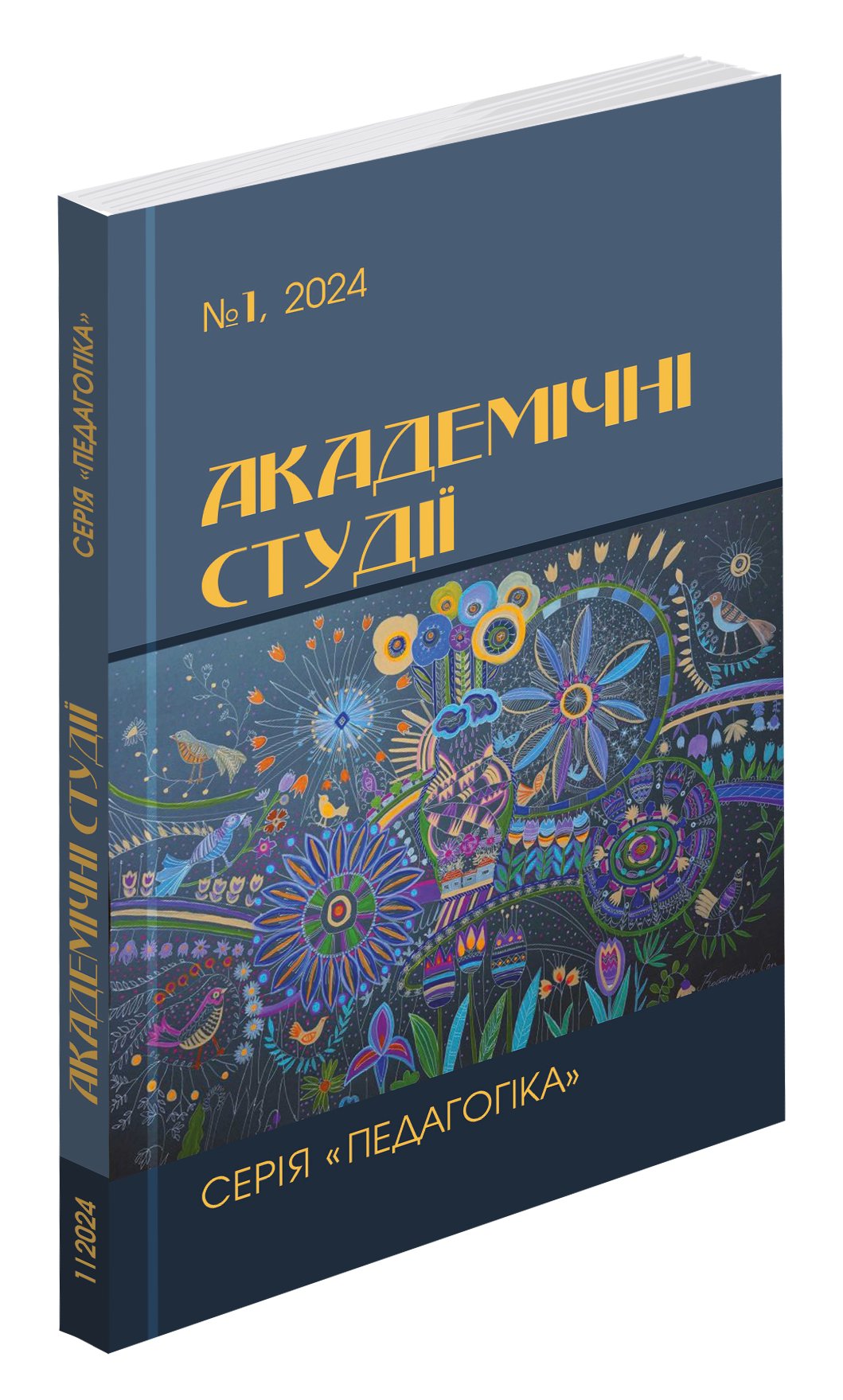Abstract
The relevance of using Artificial Intelligence (AI) in the educational process of higher education institutions in Ukraine creates new opportunities to ensure an effective learning experience. Specifically, the application of AI can serve as a means to enhance motivation and self-development for individuals pursuing education. However, it is important to note that the role of teachers and tutors must remain crucial, as the functioning of AI technologies cannot fully replace communication and interpersonal interaction. These aspects play a significant role in fostering critical thinking among applicants for higher education. The article conducted an analysis of the experience with the use of AI tools among students in higher medical education institutions during the study of the “Molecular Biology” discipline. The study of the experience of using AI tools among applicants for higher education in the medical field during the “Molecular Biology” course revealed that 70.3% of respondents utilize AI for learning. The participants’ experience with AI was associated with audio visualization. However, the research results demonstrate that ChatGPT is the most prevalent AI tool among applicants for higher education in the medical field. The study identified several ways in which ChatGPT is utilized by students: searching for personally-oriented information during scientific work in higher education; checking and editing written assignments; developing schedules and class timings; seeking personalized recommendations for educational resources, and more. It is noted that uncontrolled use of AI by applicants for higher education in their academic activities may lead to certain educational risks. Specifically, the utilization of information provided by ChatGPT may violate principles of academic integrity; the “automatic” use of generated AI texts contradicts academic integrity principles as well; and education learners might risk losing critical thinking skills and the ability to analyze and compare acquired knowledge. In order to mitigate the mentioned educational risks, it is crucial to implement effective control strategies regarding the use of AI in the educational process. Additionally, applicants for higher education in the medical field should be taught to critically analyze information obtained through AI means. Avoiding these risks is also possible through the improvement of academic programs, diversification of multi-level individual assignments that require critical thinking skills, and fostering discussions on problematic and complex issues during classroom sessions.
References
Розпорядження Кабінету Міністрів України «Про схвалення Концепції розвитку штучного інтелекту в Україні» від 2 грудня 2020 р. № 1556-р Київ, із змінами, внесеними згідно з Розпорядженням КМ № 1787-р від 29.12.2021. URL: https://zakon.rada.gov.ua/laws/show/1556-2020-%D1%80#Text
Biswas, Som, Role of Chat GPT in Education (February 25, 2023). URL: https://ssrn.com/abstract=4369981
BAİDOO-ANU, D., & OWUSU ANSAH, L. (2023). Education in the Era of Generative Artificial Intelligence (AI): Understanding the Potential Benefits of ChatGPT in Promoting Teaching and Learning. Journal of AI, 7(1), 52–62. URL: doi.org/10.61969/jai.1337500
Dempere, Juan and Modugu, Kennedy Prince and Hesham, Allam and Ramasamy, Lakshmana, The impact of ChatGPT on higher education (September 8, 2023). Dempere J, Modugu K, Hesham A and Ramasamy LK (2023) The impact of ChatGPT on higher education. Front. Educ. 8:1206936. URL: doi: 10.3389/feduc.2023.1206936.
Imran, M., & Almusharraf, N. (2023). Analyzing the role of ChatGPT as a writing assistant at higher education level: A systematic review of the literature. Contemporary Educational Technology, 15(4), ep464. URL: https://doi.org/10.30935/cedtech/13605
L. Chen, P. Chen and Z. Lin. «Artificial Intelligence in Education: A Review» in IEEE Access. vol. 8. pp. 75264–75278, 2020. URL:doi: 10.1109/ACCESS.2020.2988510.
Marienko, M., & Kovalenko, V. (2023). Shtuchnyi intelekt ta vidkryta nauka v osviti [Artificial intelligence and open science in education]. Fizyko-matematychna osvita – Physical and Mathematical Education, 38(1), 48–53. URL: doi.org/10.31110/2413-1571-2023-038-1-007

